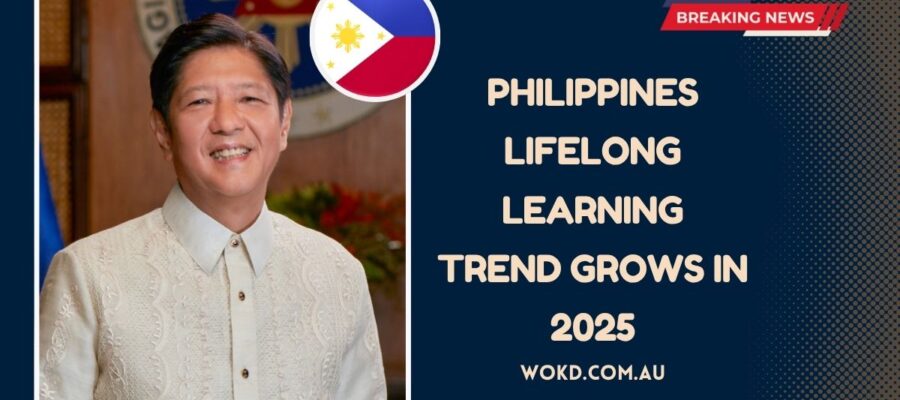In 2025, the Philippines is witnessing a transformative rise in lifelong learning, with technology-focused education and digital credentials becoming central to career advancement.
Driven by automation, AI integration, and fast-evolving job descriptions, Filipino workers across all sectors are returning to education—not by compulsion, but by strategic choice.
As part of its national development blueprint, the government has declared lifelong learning a key pillar for economic resilience, empowering mid-career professionals to remain competitive through flexible, tech-integrated education pathways.
Why Lifelong Learning Is Booming in 2025
The demand is directly linked to:
- Automation replacing routine tasks
- Increased use of AI in recruitment and job performance
- Growing need for digital fluency across all industries
- The expansion of online education platforms offering micro-credentials
Government agencies like TESDA, CHED, and private firms such as Microsoft and Google are launching upskilling grants, hybrid training models, and digital certification pathways to meet this growing need.
Top Trends in Philippine Lifelong Learning – July 2025
| Category | Key Trends 2025 | Example Initiatives |
|---|---|---|
| Tech Skills Growth | AI, cybersecurity, cloud, blockchain | Google Career Certificates, TESDA Bootcamps |
| Adult Education Growth | Higher participation from age 35+ | DOST Learning Hubs, e-Learning for Teachers |
| Credentials | Stackable digital badges, micro-certificates | Microsoft Learn, Coursera PH, SkillUp DICT |
| Learning Format | Self-paced, mobile-friendly, hybrid modules | Edukasyon.ph, LinkedIn Learning PH |
New Learners: Who’s Going Back to School?
Lifelong learning in the Philippines is no longer limited to youth. Mid-career professionals—particularly those aged 30 to 50—are the fastest-growing demographic in adult education.
- Educators are learning hybrid teaching models via e-learning.
- Farmers in provinces like Isabela are learning precision agriculture.
- Government employees are studying digital policy tools.
- Call center workers are transitioning into data analytics and coding roles.
This shift underscores a broader cultural change, where continuous learning is now embedded in career survival and growth.
Digital Credentials vs. Traditional Degrees
In 2025, digital credentials and certificates carry increasing value in hiring decisions. Employers now prefer skill-specific evidence, such as:
- Completion of a cybersecurity bootcamp
- A digital badge in AI operations
- Verified completion of a cloud computing module from a global platform
Degrees still matter, but they are often seen as a foundation. It’s the stackable, job-relevant micro-credentials that determine employability in a modern job market.
Technology’s Role in Modern Learning
Technology is transforming not just what we learn—but how we learn:
- Modular content allows for flexible, bite-sized learning
- Mobile access enables upskilling from anywhere
- AI-integrated learning platforms tailor content to user behavior
- Digital verification ensures employers can trust certifications
From Edukasyon.ph to global tools like LinkedIn Learning and Coursera, learners now have on-demand access to career-relevant content.
The rise of lifelong learning in the Philippines in 2025 reflects a nation rapidly adapting to global economic shifts. With tech skills, micro-credentials, and hybrid learning models now defining career success, the Filipino workforce is embracing a culture of continuous education.
As government support increases and platforms expand, more learners will be empowered to reskill, adapt, and thrive—making lifelong learning not just a trend, but a necessity for national growth.
FAQs
Why is lifelong learning growing in the Philippines in 2025?
Because of automation, AI-driven recruitment, and evolving job roles that require constant skill upgrades to remain employable.
Are credentials more valuable than degrees now?
Yes. While degrees are still relevant, employers increasingly prioritize short-term, skill-specific certifications that prove immediate job readiness.
Who benefits most from this learning boom?
Mid-career professionals (ages 30–50), especially in education, agriculture, and public service, are leading the shift toward lifelong learning.

